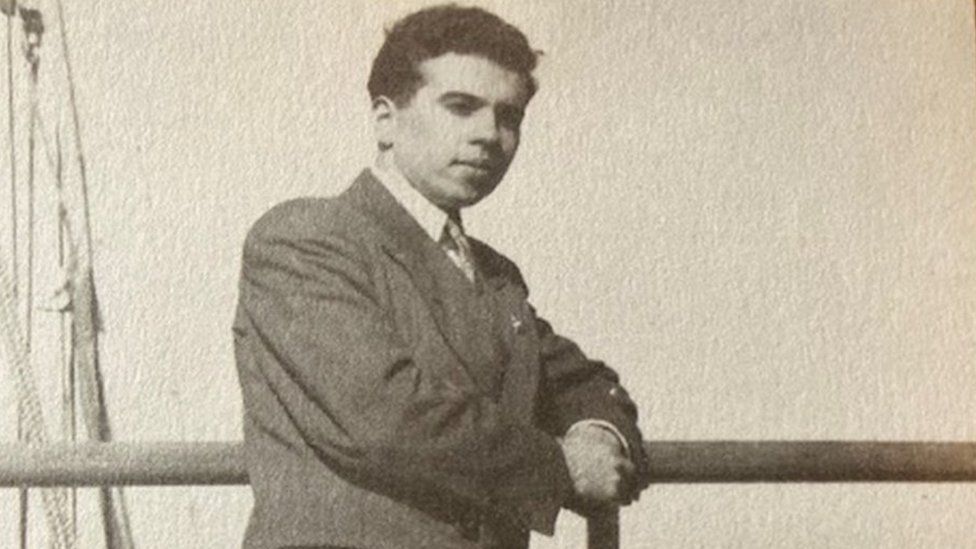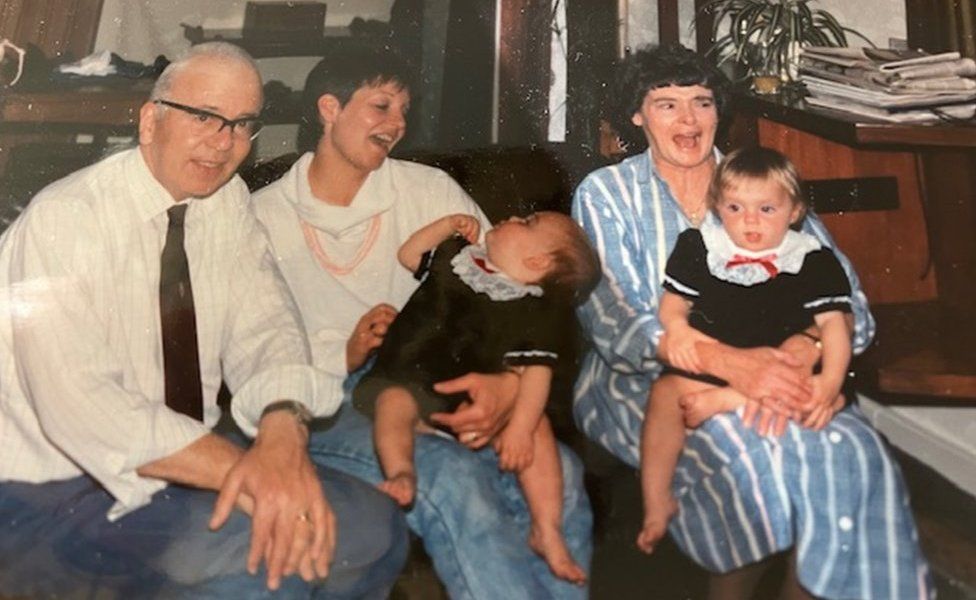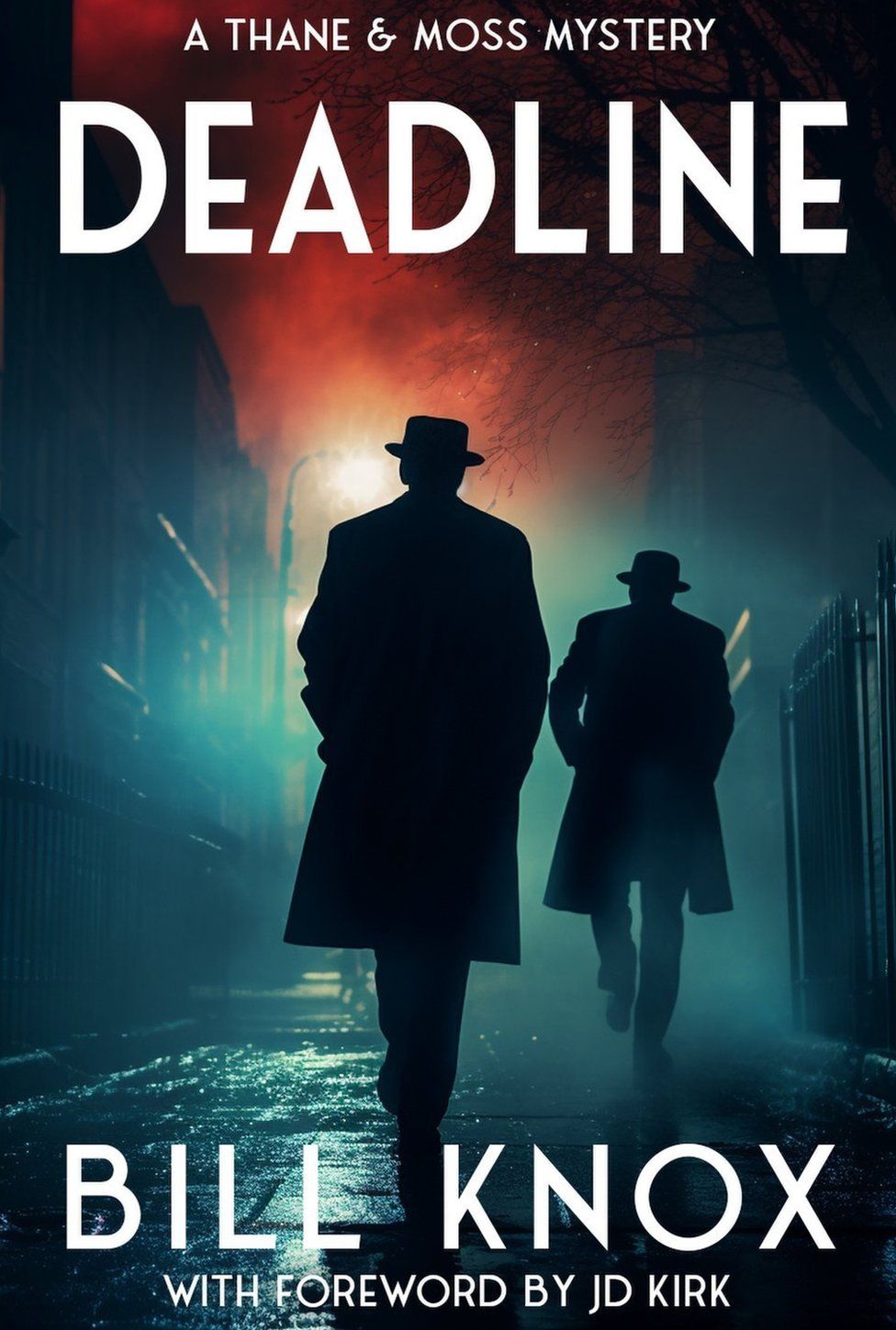
Decades before Inspector Rebus, Karen Pirie and Jack Laidlaw walked Scotland’s mean streets, two detectives solved the nation’s fictional crimes.
Ch Insp Thane was the hot-headed one. Moss was his cool, determined colleague. They first appeared in 1957 in the book Deadline for a Dream.
Their creator was Bill Knox.
He had started out as a newspaper copy boy at the age of 16. By his 20s, he had set off for America and began writing the first of his 65 books which would include a New York Times bestseller.
At the same time, he was juggling a range of jobs including crime reporter, TV presenter and motoring correspondent, as his daughter Susan recalls.
“He liked to balance a lot of eggs in a lot of different baskets,” she says.
“He never wanted to commit himself solely to writing. He wanted to do other things which really helped his writing.”
- Bloody Scotland: The festival with a sense of fun
- Aberdeen ‘criminally good for authors’
- Budding crime writers get the science right
Bill was meticulous in his research. His hard work won him a Crime Writers’ Association award in the 1950s.
The winning book – Pilot Error – used his son’s experience as a professional pilot and was later made into a film for German TV.
His regular overseas trips test-driving cars gave him the backgrounds for a series of novels featuring his character Jonathan Gaunt.
And his contacts with police led to the job which brought him perhaps his greatest fame, presenting the long-running Crimedesk programme on STV In the 1970s.
In it, Bill reported on and asked for the public’s assistance in investigating crimes across the central Scotland area.
And he always signed off with the promise that any calls to the police would be “in confidence.”
But he wasn’t always in the force’s good books.
In the 1950s he was the only journalist to secure an interview with the serial killer Peter Manuel, before he was arrested and convicted of the murder of seven people. Manuel was the last man to be hanged in Scotland.
“He got into such a lot of trouble as the police didn’t know he was doing it,” says Susan.
“For a weekend afterwards myself, my mother and my brother had to go to a safe house.”

Bill died in 1999 and although one last novel – The Lazarus Widow – was finished by writer Martin Edwards, the rest of his 65 books soon fell out of print.
“His last agent just disappeared,” says Susan.
“When I did track her down, I found she had ceased business and I can only imagine she’d died.”
Enter Fort William based writer Barry Hutchison who writes his own crime novels under the pen name JD Kirk.
He found one of Bill’s Thane and Moss series – Death Department – in a second hand book shop in Inverness.
“I was absolutely hooked by the characters, hooked by the writing and transported back to 1950s Glasgow,” he recalls.
“So I went to find the rest of them and realised they weren’t available.”

He and his wife decided to use their own publishing company – Zertex Media – to bring some of Bill’s books back into print. They tracked down the original manuscripts and began fixing the thousands of errors in the original text.
“It was only then that I realised how well loved he was,” says Barry.
“His books were everywhere. We found reviews worldwide including the New York Times, singing their praises in all these different places.”
The first book – Deadline – was published in January as an audiobook, digital download and paperback.
Death Department followed in February and a third – Leave it to the Hangman – will be published at the end of March.
Barry believes all of Scotland’s modern crime writers owe a great debt to Bill Knox.
“I would say he is probably one of the grandfathers of tartan noir,” he says.

“His books created a template for Scottish crime fiction. I started my series before I read any of Bill’s books, but I can look at my characters DCI Jack Logan and DI Ben Ford now and I can see Thane and Moss in them.”
He believes there is a healthy appetite for tartan noir so he is not fearful of competition.
“I can write a book in two months but a reader can read it in a day and then they’re asking for the next one which is going to take me months to write,” he says.
“So my competition isn’t other crime fiction authors. My competition is Netflix, or films or video or whatever takes them away from crime fiction.
“So if I can say I don’t have a new book yet, but there’s this fantastic series by another author and I think you’re going to love it, by the time they’ve read that and a few other authors I’ve recommended they will come back to me because they will still be in that pool of crime fiction readers.”
And that recommendation comes – naturally – “in confidence”.
Related Topics
- Literature
- Books